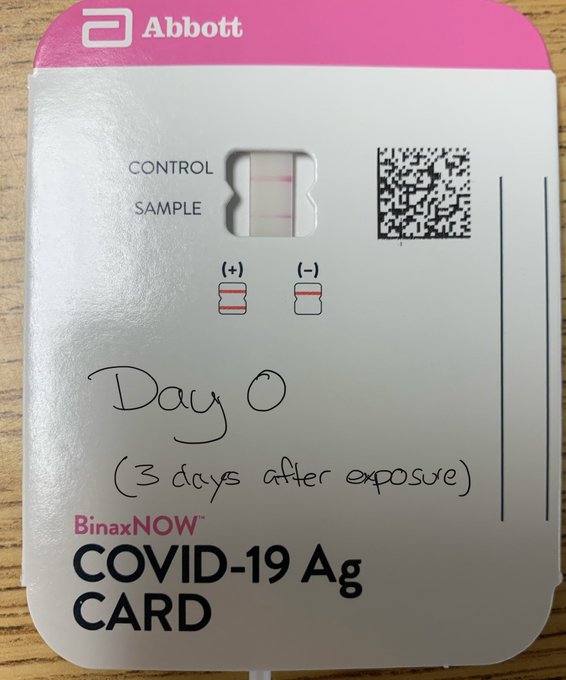CDC recommends shorter COVID isolation, quarantine for all
By MIKE STOBBE
52 minutes ago
NEW YORK (AP) — U.S. health officials on Monday cut isolation restrictions for Americans who catch the coronavirus from 10 to five days, and similarly shortened the time that close contacts need to quarantine.
Centers for Disease Control and Prevention officials said the guidance is in keeping with growing evidence that people with the coronavirus are most infectious in the two days before and three days after symptoms develop.
The decision also was driven by a recent surge in COVID-19 cases, propelled by the omicron variant.
...
CDC Director Rochelle Walensky said the country is about to see a lot of omicron cases.
“Not all of those cases are going to be severe. In fact many are going to be asymptomatic,” she told The Associated Press on Monday. “We want to make sure there is a mechanism by which we can safely continue to keep society functioning while following the science.”
Last week, the agency loosened rules that previously called on health care workers to stay out of work for 10 days if they test positive. The new recommendations said workers could go back to work after seven days if they test negative and don’t have symptoms. And the agency said isolation time could be cut to five days, or even fewer, if there are severe staffing shortages.
...
https://apnews.com/article/coronavir...0df7ca7282c9d6
By MIKE STOBBE
52 minutes ago
NEW YORK (AP) — U.S. health officials on Monday cut isolation restrictions for Americans who catch the coronavirus from 10 to five days, and similarly shortened the time that close contacts need to quarantine.
Centers for Disease Control and Prevention officials said the guidance is in keeping with growing evidence that people with the coronavirus are most infectious in the two days before and three days after symptoms develop.
The decision also was driven by a recent surge in COVID-19 cases, propelled by the omicron variant.
...
CDC Director Rochelle Walensky said the country is about to see a lot of omicron cases.
“Not all of those cases are going to be severe. In fact many are going to be asymptomatic,” she told The Associated Press on Monday. “We want to make sure there is a mechanism by which we can safely continue to keep society functioning while following the science.”
Last week, the agency loosened rules that previously called on health care workers to stay out of work for 10 days if they test positive. The new recommendations said workers could go back to work after seven days if they test negative and don’t have symptoms. And the agency said isolation time could be cut to five days, or even fewer, if there are severe staffing shortages.
...
https://apnews.com/article/coronavir...0df7ca7282c9d6




Comment